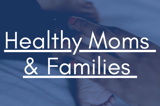
Address Disparities in Opportunity and School Funding
In Wisconsin, while 1 percent of Wisconsin’s white children live in high poverty areas 35 percent of African-American children and 18 percent of Latino children do. In 2019, the white graduation rate was 92.7 percent, compared to the Black rate of 67 percent - this is the biggest gap in the nation. Since 2000-01, the number of bilingual pupils in the state has increased by approximately 78%, however, the appropriation for bilingual-bicultural aid increased by only 4%, from $8,291,400 GPR in 2000-01 to $8,589,900 in 2019-20.
Increase mental health support
Between 2016 and 2019, 14.9% of Wisconsin youth ages 12-17 reported a major depressive episode in the past year. During the same time period, 12.1% of young adults aged 18-25 in Wisconsin reported having had serious thoughts of suicide in the past year. Wisconsin's 2019 Youth Risk Behavior Survey found that of the pupils surveyed, 49.0% reported high levels of anxiety, 28.5% indicated depression, and 18.5% reported that they had engaged in self-harm over the previous twelve months.
Policies that Change the Narrative
Birth Equity Act
The infant mortality rate for Black babies in Wisconsin is 14.3% compared to 4.9% for white babies. We cannot accept this fate without change any longer - lives are at stake. That is why I am proud to introduce the Birth Equity Act, which seeks to disrupt our state's most onerous barriers to child and maternal health, while also bringing awareness to these pervasive disparities. This legislative package includes six bills that will:
- Provide an at-home wellness visit, upon request, within the first seven days of delivery
- Mandate insurance coverage of maternal mental health risk screenings
- Repeal Wisconsin’s Medicaid birth cost recovery law
- Establish pregnancy as a qualifying event for employer-sponsored health plans
- Remove the sales tax on breastfeeding equipment and supplies
- Expand access to dental care for pregnant BadgerCare recipients
The Birth Equity Act is a significant first step toward instituting actionable policy and system changes for Wisconsin’s BIPOC mothers and infants. For more information about the Birth Equity Act and how you can show your support, visit www.wibirthequity.org.
Respect Act
Starting a family, becoming a parent, and ending a pregnancy are some of the most personal, private decisions of our lives. Every person should be able to make these decisions without political interference. That is why I was proud to introduce the Respect Act along with my colleagues, Sen. Kelda Roys and Rep. Francesca Hong. This legislative package includes two bills that will:
- Ensure that patients in Wisconsin can obtain a safe and legal abortion since Roe v. Wade was overturned
- Require that patient care and information be grounded in evidence-based, medically accurate science
The Respect Act supports both patients and healthcare professionals by keeping politicians out of the exam room. Moreover, it will restore the rights of Wisconsinites to make their own reproductive healthcare decisions, free from harassment, intimidation, political interference, or false information.
SCHOOL Act
There are two bills included in the SCHOOL Act. The first bill, 2019 Senate Bill 423, addresses lead in school drinking water by requiring testing and, if necessary, requiring that contaminated water sources be taken offline and replaced with clean water sources while incentivizing long-term remediation by buying down the interest rate of BCPL loans. The second bill, 2019 Senate Bill 424, tackles lead in the drinking water of daycares, group homes, and summer camps by requiring testing as a component of licensure and, if necessary, ensuring that contaminated water sources be taken offline and replaced with clean water sources.
Co-authored bill with Rep. Haywood, this legislation would provide $40 million in bonding for lead service line removal in our state.
To encourage landlords to remove lead hazards from tenancies, Senator Johnson co-authored a bill to provide a tax credit to property owners who undertake lead abatement in a dwelling. The bill is supported by the Wisconsin Realtors Association and the Wisconsin Apartment Association.
2023-2025 Budget Policies & Their Outcomes
Expand Bucky's Promise
Bucky's promise is a University of Wisconsin System program that allows students with a household income of less than $60,000 to attend any UW school tuition-free for four years. This program has been incredibly effective and bridging the gap for higher education for working families. Governor Evers wanted to expand this program to be state wide.
Outcome: Not included in the GOP budget proposal passed into law.
Expand post-partum badger care for new moms to 12 months
This policy is designed to address the heightened health risks women face during the post-partum period, such as complications from childbirth, mental health issues, and challenges in managing the physical recovery process. Extending healthcare coverage can help ensure mothers receive necessary care, reducing the risk of morbidity and mortality and supporting overall maternal and infant health. By enabling consistent medical attention and support for a year, instead of just two months postpartum, this policy acknowledges the complex needs of postpartum mothers, effectively addressing the stark racial disparities in maternal health outcomes that persist in Wisconsin.
Outcome: Not included in the GOP budget proposal passed into law.
Interventions for Lead Poisoning in Children
Governor Evers' included a list of policies to help address lead poisoning in our state, especially in Milwaukee, where 2/3s of the state's childhood lead poisoning cases have been identified. The measures included lowering the definition of lead exposure, a significant fund allocation for public health investigations, expanding eligibility for the Birth to 3 Program to children with elevated blood lead levels, creating a program to promote non-lead fishing tackle and ammunition, allocating $200 million for replacing lead service lines, and modifying state law to allow utilities to provide 100% grant funding for lead line replacements for property owners.
Outcome: The GOP cut all programs but low-interest loans for lead remediation in the budget passed into law.
